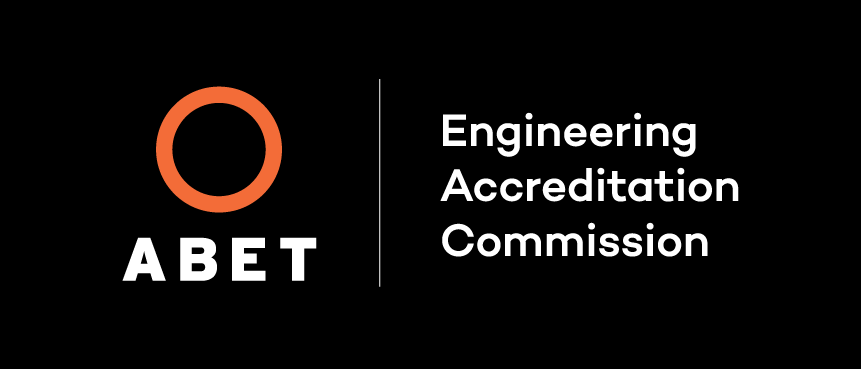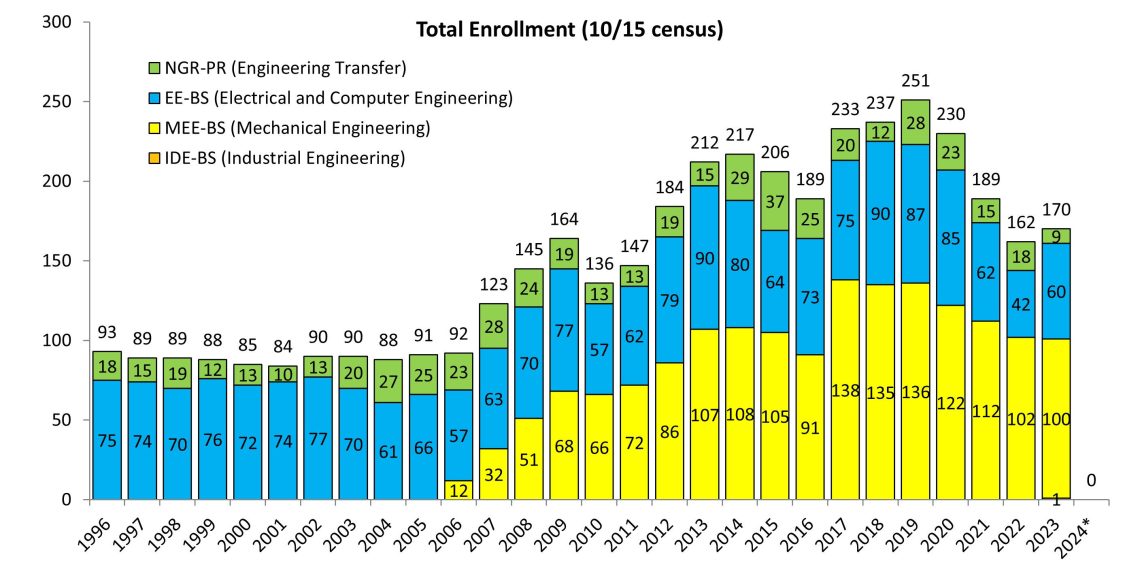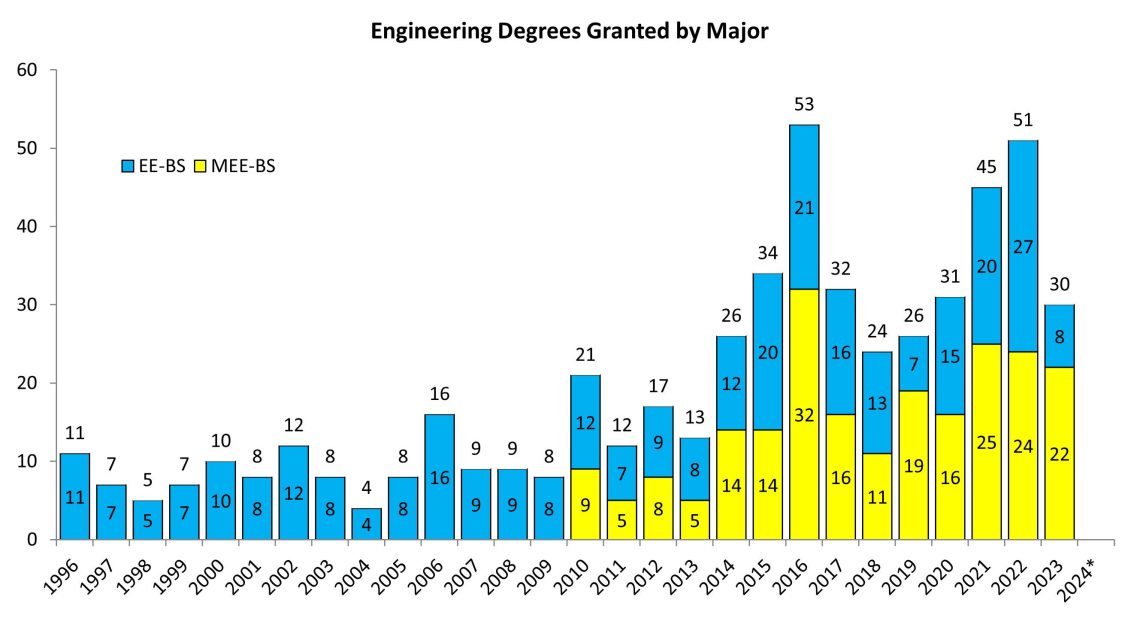
Supported by industry
The greater Portland area is the economic and cultural center of Maine. Its industrial base is very different from the rest of the state. Whereas industry in the rest of the state is concentrated on natural resource-based industries such as paper mills and agriculture, the greater Portland area enjoys the presence of a substantial number of high technology firms, such as Fairchild Semiconductor, Texas Instruments, Bath Iron Works, IDEXX, and Lanco Assembly Systems. All of these firms need engineers to design and develop their products. Our programs have been developed and approved at the urging of local industrial firms and have received contributions to launch the programs.
Strong program growth
The department was founded upon our original Bachelor of Science in Electrical Engineering (BSEE) program which was approved by the University of Maine System’s Board of Trustees (BOT) in 1989. The Bachelor of Science in Mechanical Engineering (BSME) program was approved by the BOT in the spring of 2007 and was housed in the same department to exploit synergies between the programs and graduate well-rounded engineering professionals. The BSEE and the BSME programs are both accredited by the Engineering Accreditation Commission (EAC) of the Accreditation Board for Engineering and Technology (ABET), http://www.abet.org.
In 2022, we expended our electrical engineering program to include a computer engineering track. Graduates of the program now earn a degree in electrical and computer engineering (ECE). We also introduced Maine’s first Bachelor of Science in Industrial Engineering (BSIE), which was approved for the BOT in the Fall of 2022. This program will seek ABET accreditation in the next available accreditation review cycle with first BSIE graduates expected in 2027. Below are historical data on the total number of enrollments in our programs (top) and the number of degrees grant per program (bottom) as of Q1 2023.


Program educational objectives
Consistent with ABET’s Engineering Accreditation Commission guidelines, the following is a list of Program Educational Objectives (PEOs) attained by our graduates:
- excel as engineers in technologically-intensive environments;
- succeed in post-baccalaureate and graduate studies;
- transfer their acquired skills to a variety of contexts and endeavors; and
- contribute to society as broadly educated, articulate, and ethical professionals and citizens.
In order to prepare our graduates to attain our Program Educational Objectives, we deliver a modern curriculum that promotes a set of Student Learning Outcomes. Specifically, we expect our graduates to demonstrate:
- an ability to identify, formulate, and solve complex engineering problems by applying principles of engineering, science, and mathematics;
- an ability to apply engineering design to produce solutions that meet specified needs with consideration of public health, safety, and welfare, as well as global, cultural, social, environmental, and economic factors;
- an ability to communicate effectively with a range of audiences;
- an ability to recognize ethical and professional responsibilities in engineering situations and make informed judgments, which must consider the impact of engineering solutions in global, economic, environmental, and societal contexts;
- an ability to function effectively on a team whose members together provide leadership, create a collaborative and inclusive environment, establish goals, plan tasks, and meet objectives;
- an ability to develop and conduct appropriate experimentation, analyze and interpret data, and use engineering judgment to draw conclusions; and
- an ability to acquire and apply new knowledge as needed, using appropriate learning strategies.

